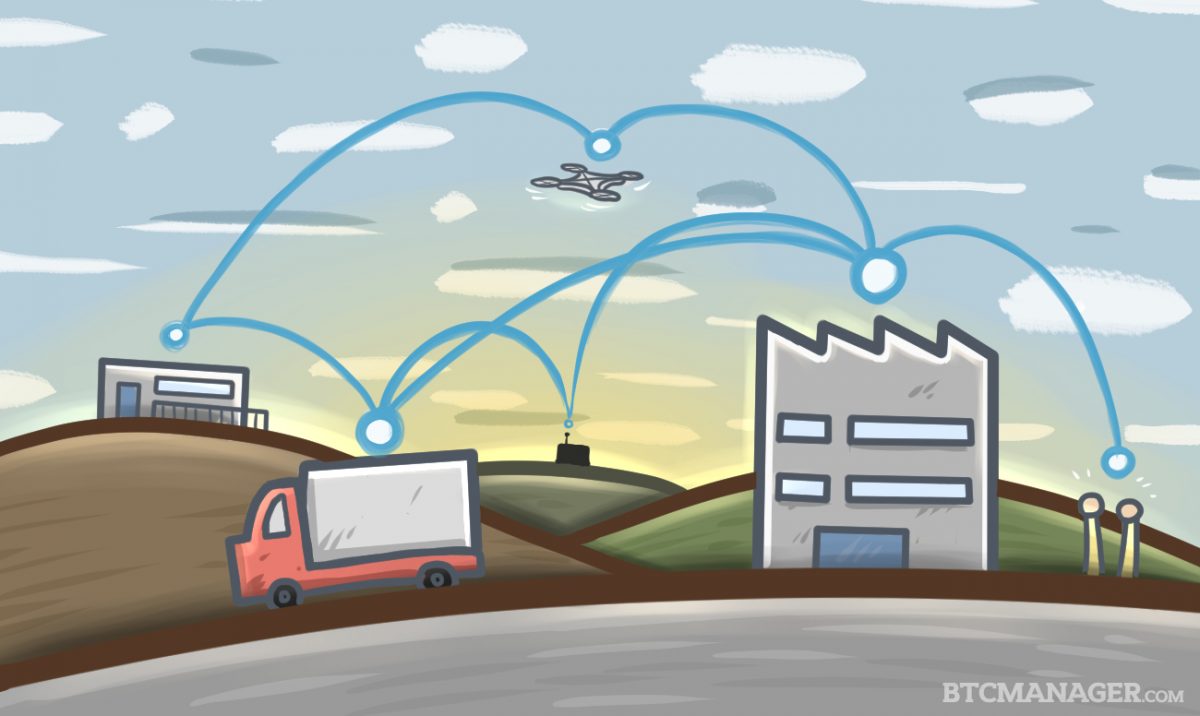IoT Applications Get Industrial: Filament Releases White Paper

Filament has released a white paper detailing its open technology stack for industrial Internet of Things applications.
Filament, formerly Pinoccio, aims at helping industrial customers connect legacy infrastructure and achieve efficiencies and cost reductions that they wouldn’t otherwise be able to do.
The company develops ad-hoc mesh networks of smart sensors for industrial applications, operating on blockchain technology. Filament’s wireless sensor devices, called Taps, can cover industrial areas with low-power autonomous mesh networks for data collection and asset monitoring.
By leveraging the blockchain, devices in a network can discover, communicate and interact with each other in a fully autonomous and distributed manner. In addition, these devices can exchange value directly or indirectly with a wide range of entities. These values can be data, network access, currencies such as bitcoin, computer cycles, contracts for ongoing service, trusted introductions to other devices, and much more.
Interactions are made possible by hardware and software technologies which Filament has developed while taking into account five key principles: security, privacy, autonomy, decentralization and exchange, or what the company calls the SPADE framework.
The Filament stack uses telehash for communication among devices, which enables completely distributed, decentralized interaction. Identity is tied to the telehash hashname of a device.
The Filament stack also allows for the use of smart contracts. This makes it possible to specify the particular conditions under which a device will interact with other entities without reference to a cloud service.
Instead of relying exclusively on WiFi, cellular, or satellite access, Taps communicate over radio, allowing the FIlament stack to be used where connectivity is intermittent or unavailable.
The opportunity for connected exchange is huge. Cisco predicts that the global Internet of Things market will reach US$14.4 trillion by 2022. Internet of Things in manufacturing market size is estimated to grow from US$4.11 billion in 2015 to US$13.49 billion by 2020.
Internet gigacorporations such as Google and Facebook are connecting billions of users and have gained a level of power and control over communication and exchange that is unprecedented in human history.
Whether a corporation can scale its technology to become a “teracorp” and mediate the interactions of trillions of devices remains to be seen. That being said, Filament believes that an organization capable of reaching this scale would be “detrimental for human society” because of the security and privacy implications.
The company is building an alternative path that relies on an entirely decentralized network in which autonomous endpoints use smart contracts and private microtransactions to interact and exchange value in voluntary and secure ways.
Filament is reportedly in talks Coca-Cola Co. to use its technology to monitor vending machines and enable microtransactions on a blockchain, Shilipi Kumar, head of product marketing at Filament, told the Wall Street Journal earlier this year.
Derek Myers, group director of channel strategy and Commercialization at Coca-Cola, said during SXSW in March:
Using the Internet of Things and knowing when a customer is approaching a machine means we can deliver very personal messages. For example, we could have a Powerade message [on a vending machine] because we know someone is going to the gym or show them one for a protein drink after their workout. Strong occasional driven content can help us be that much more powerful.
In 2015, Filament raised US$5m in Series A funding led by Bullpen Capital, including contributions from Verizon Ventures and Samsung Ventures.












